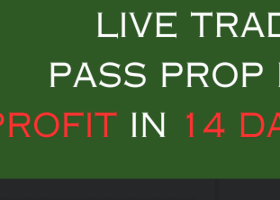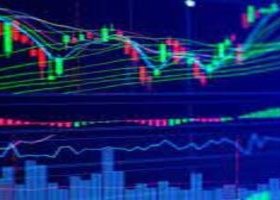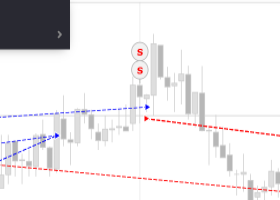Hong Kong stocks are beating every other developed market in the world this month as lower valuations shelter shares from a global selloff and the city’s worst political unrest since the 1960s.
The MSCI Hong Kong Index rallied 3.1 percent in October through yesterday, the most among 23 developed markets tracked by MSCI Inc. and one of only two to gain. The measure today erased its loss since police fired tear gas at pro-democracy demonstrators on Sept. 28, rising 0.9 percent, compared with a 3.2 percent slump by the MSCI World Index in the same period.
“Hong Kong as a whole has held up pretty well despite what’s going on,” said Nicholas Yeo, a money manager at Aberdeen Asset Management Plc, which oversees $550 billion and hasn’t changed its holdings because of the protests. “After the first few days, people are becoming more rational and more pragmatic,” he said. “We haven’t come to a stage where this means it’s the end of Hong Kong.”
With the benchmark Hang Seng Index trading at 10 times earnings yesterday, the lowest multiple among the world’s major developed markets, Bocom International Holdings Co. says the impact of the protests is already reflected in equity prices. RS Investment Management Co. sees catalysts for Hong Kong stocks in a trading link with Shanghai and prospects for Chinese stimulus.
The Hang Seng Index rose 1.4 percent to 23,403.97 at the close today, its steepest gain in seven weeks, while the MSCI Hong Kong Index added 1.4 percent.
Among 53 developed and emerging country MSCI indexes, only a measure of equities in Turkey rallied more in October through yesterday than the Hong Kong gauge, data compiled by Bloomberg show. Casino operators Sands China Ltd. and Wynn Macau Ltd. led gains, surging at least 9.7 percent.
Short-Lived Drop
While the Hang Seng Index plunged 3.2 percent over two days after police used tear gas on crowds last month, shares stabilized as the size of the protest sites shrank and investors weighed the impact on the city’s listed companies.
Firms that get a majority of their sales from Hong Kong make up about 13 percent of the Hang Seng Index, while those that rely on China make up at least 54 percent, data compiled by Bloomberg show. Li & Fung Ltd., the wholesaler that gets more than half its revenue from the U.S., rallied 5.8 percent this month through yesterday.
Hong Kong Chief Secretary Carrie Lam and four other government officials held discussions yesterday with five members of the Hong Kong Federation of Students led by Secretary-General Alex Chow in an attempt to resolve the biggest challenge to China’s sovereignty over Hong Kong since the end of colonial rule in 1997.
Democracy Demands
Student leaders have demanded China amend a decision that candidates in the city’s first-ever leadership election in 2017 must be vetted by a nominating committee, a mechanism they say is designed to guarantee a chief executive more loyal to China than to Hong Kong.
“We’ve already seen the larger negative impact from the protests already taking place, and now the scale has been more manageable,” said Tony Chu, a money manager for RS Investment, which oversees about $22.3 billion and holds more Hong Kong stocks than the benchmarks it tracks. The “medium to longer term outlook looks positive.”
Investors are hoping for more economic stimulus as Communist Party leaders meet this week, said Mari Oshidari, a Hong Kong-based strategist at Okasan Securities Group Inc.
China is planning the injection of about 200 billion yuan ($32.7 billion) into some national and regional lenders, a government official familiar with the matter said last week, in its latest effort to shore up slowing growth. Gross domestic product rose 7.3 percent last quarter, the slowest pace since 2009, a report showed yesterday.
Global Slump
The central bank provided 500 billion yuan of liquidity to China’s five biggest banks last month and the nation began easing property curbs in some cities to support slumping prices.
Hong Kong’s stock rally contrasts with a global slump dragging down shares from New York to London and Tokyo. About $2.8 trillion was wiped off the value of equities worldwide in October through last week amid concern about the outlook for economic growth, falling oil prices and the spread of the Ebola virus. The Standard & Poor’s 500 Index has slid 3.5 percent from last month’s record.
Federal Reserve policy makers are winding down their monthly pace of asset purchases, and traders see about a 38 percent chance the central bank will increase its benchmark rate to at least 0.5 percent from around zero by September 2015, based on federal fund futures contracts.
Borrowing Costs
When rates are raised in the U.S., Hong Kong will import higher borrowing costs as its dollar is pegged to the greenback. That’s a reason to stay away from local shares Societe Generale SA’s Asia equity strategist Vivek Misra says, because rising yields will weigh on the property market. In contrast, policy support and low valuations on Chinese stocks in Hong Kong make them an attractive investment, Misra said.
The protests’ impact on the Hong Kong’s economy will mostly be reflected in the medium- to long-term, including the city’s international reputation, Financial Secretary John Tsang wrote in his blog Oct. 19.
Retailers have suffered amid the demonstrations, with shares of jeweler Chow Sang Sang Holdings International Ltd. sliding 4.8 percent through yesterday. Cathay Pacific Airways Ltd. lost 5 percent.
Buying Crisis
“In the short term there may be some rebound because the strategy of buying whenever there is a crisis worked very well in the last 10 years in Asia so people tend to do that,” said Eng Teck Tan, Singapore-based senior portfolio manager for equities at Nikko Asset Management Co., which manages $168 billion. “Hong Kong from a longer term perspective faces a lot of challenges.”
After capping a 7.3 percent loss last month, the Hang Seng Index traded at 1.3 times net assets yesterday, a 35 percent discount to the MSCI World Index. That was 15 percent less than its five-year average, according to data compiled by Bloomberg.
Brokers are waiting to find out the start date of a planned exchange link between Hong Kong and Shanghai, which will offer a new route for international buyers to access Chinese stocks and for mainland investors to put money into Hong Kong equities. Hong Kong Exchanges & Clearing Ltd. is ready for the program and regulators will announce the timing, bourse spokesman Scott Sapp said Oct. 20.
“Valuations are on the cheaper side so that’s supportive,” said RS Investment’s Chu. “The stock connect is really beneficial for both sides, Hong Kong as well as for Shanghai.”
Optimism about the stock link has helped counteract political risk from the protests, according to Hao Hong, managing director of research at Bocom International.
“Prices have in large part reflected the impact,” Hong said by e-mail last week.



